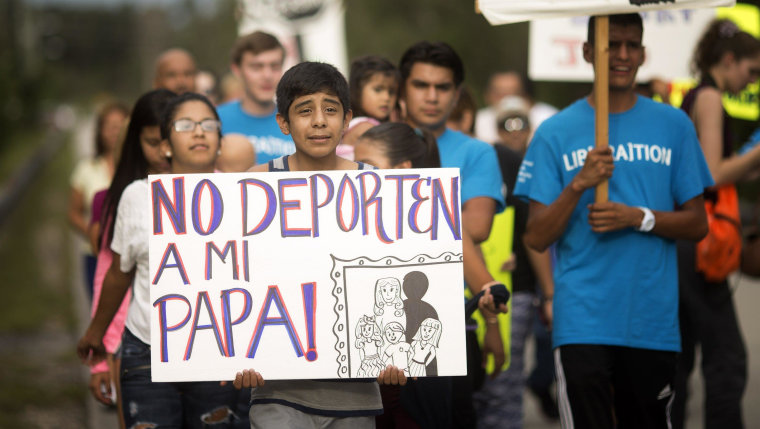WASHINGTON, DC -- As anticipation builds on what executive action President Barack Obama will take on immigration, one thing is clear, Latinos stand to be significantly affected.
Granted, a bill passed in Congress may have done more and Obama’s actions may not be all some demanded.
But should he carry out some of the actions that have been recommended, such as those from the Congressional Hispanic Caucus, there will be reverberations in the lives of many Latinos.
Rep. Loretta Sanchez, D-Calif., said Tuesday a constituent asked her over the weekend what he could expect from the president on immigration and when to expect it.
Sanchez said she explained some of the options before Obama, including possibly extending to parents something similar to the Deferred Action for Childhood Arrivals, DACA, a two-year program that shields young people here illegally from deportation and allows them to work.
“He said, ‘That’s all I need, a couple years of breathing room where I can work and keep my family together,” Sanchez said.
Of course, the families would rather have something long-term, such as a chance to become legal residents in the U.S.. But many have worried daily that since Congress took no action, they and their children would be left with nothing or would be yanked apart, Sanchez said.
“For the Hispanic Caucus and our community, it really is peace of mind- what is going to get our families into a safe place so they don’t have to worry about tomorrow,” Sanchez said.
The list of recommendations that the Hispanic caucus provided Obama, if all the actions are taken, could assist about half of the people in the U.S. illegally, Sanchez said.
David Leopold, a past president of the American Immigration Lawyers Association, said he expects Obama’s use of executive powers to have a theme: “The theme will be keep families unified so there’s less of a threat of removing a provider or parent of a child for that matter from a family unit,” Leopold said.
Another possibility for Obama is to “parole in place” people who have legal permanent resident visas - green cards - available to them but who can’t get them because they are in the country illegally.
Currently immigrants have to return to their country to get their green cards and that is where they run into difficulty. People who have to leave the U.S. and admit to having been in the country illegally or are found to have been here illegally are barred from getting a visa to the U.S. for three or 10 years, depending on time in the U.S.
The federal government has allowed military spouses to get around the rule by granting them “parole in place," Leopold said.
Such a change could affect those who already have a pathway forward, said Rep. Joe Garcia, D-Fla.
“But for the three and 10-year bar, a lot of them, 1.5 million, almost 2 million, already have their visas waiting for them, so they in essence could move quickly into a migratory status that makes all the difference in the world,” Garcia said.
That’s a fraction of the estimated 11.5 million people illegally in the country. But for those few, permits to work and the relief from potential deportation “gets them in the system, gets them investing in their communities where they live and makes them part of America,” Garcia said.
Hispanic members of Congress met with Obama July 16 and again with members of the administration on Friday. Rep. Luis Gutierrez, D-Ill. said he feels the caucus and president are "on the same page."
“I remember the president talking about people who have been here, people that have (followed the) rules, people that have American citizen children, that have established businesses, that have been in this country for years, that they deserve to stay in this country,” Gutierrez said.
The president’s possible action still is drawing protests from some who fear he won’t go far enough. A group of bishops, nuns, rabbis, pastors and other immigrant advocates planned to protest Thursday outside the White House and demand he immediately stop all deportations, “dramatically expand relief for America’s immigrant families and workers and protect unaccompanied children who have sought refuge in the U.S.”
Although he won't appease everyone, Rep. Michelle Lujan Grisham, D-N.M., said the president’s action may help bring together communities fractured by differences in legal status.
"We are not integrated as a community and it is not a healthy product," Lujan Grisham said.
